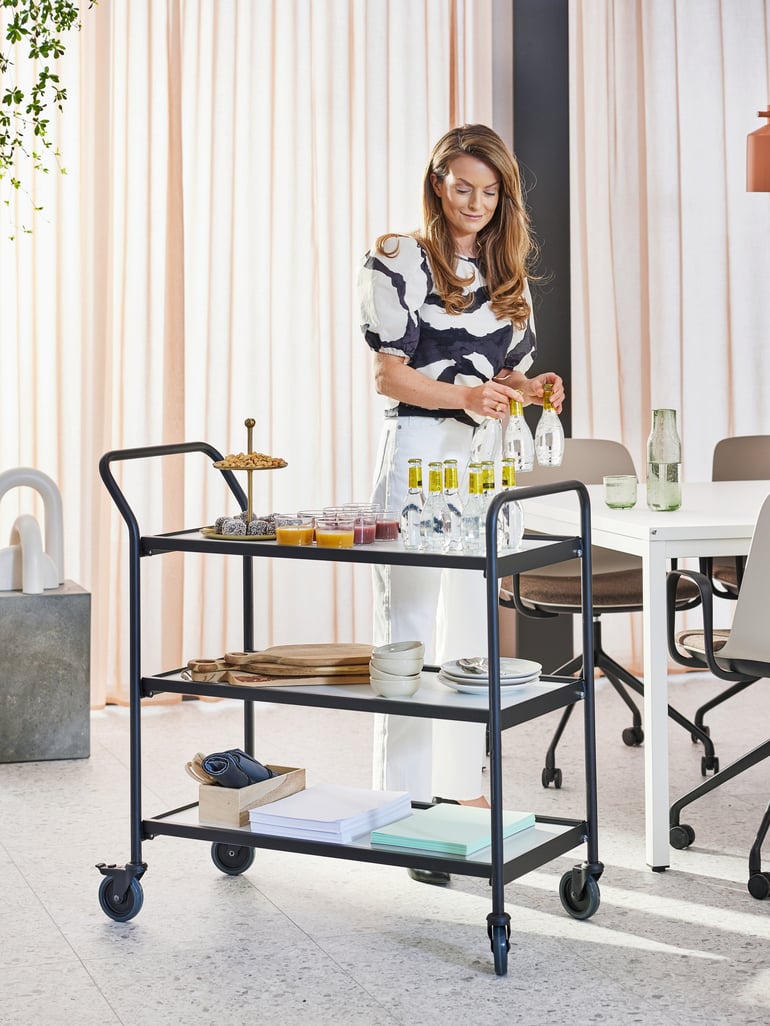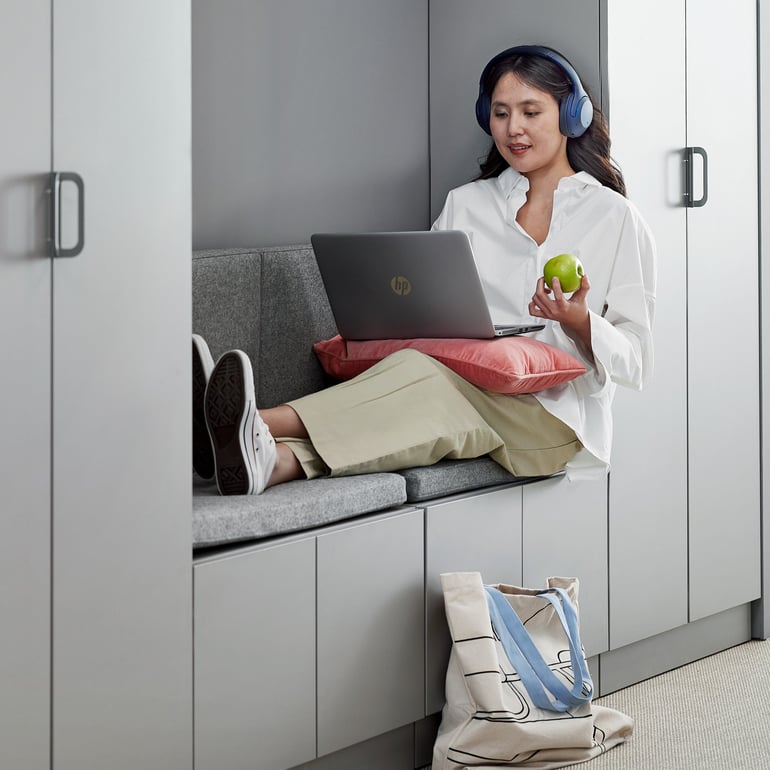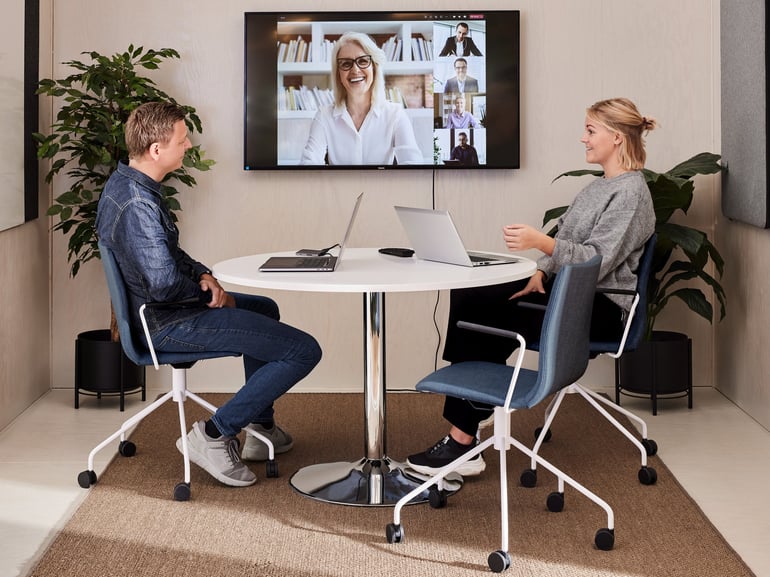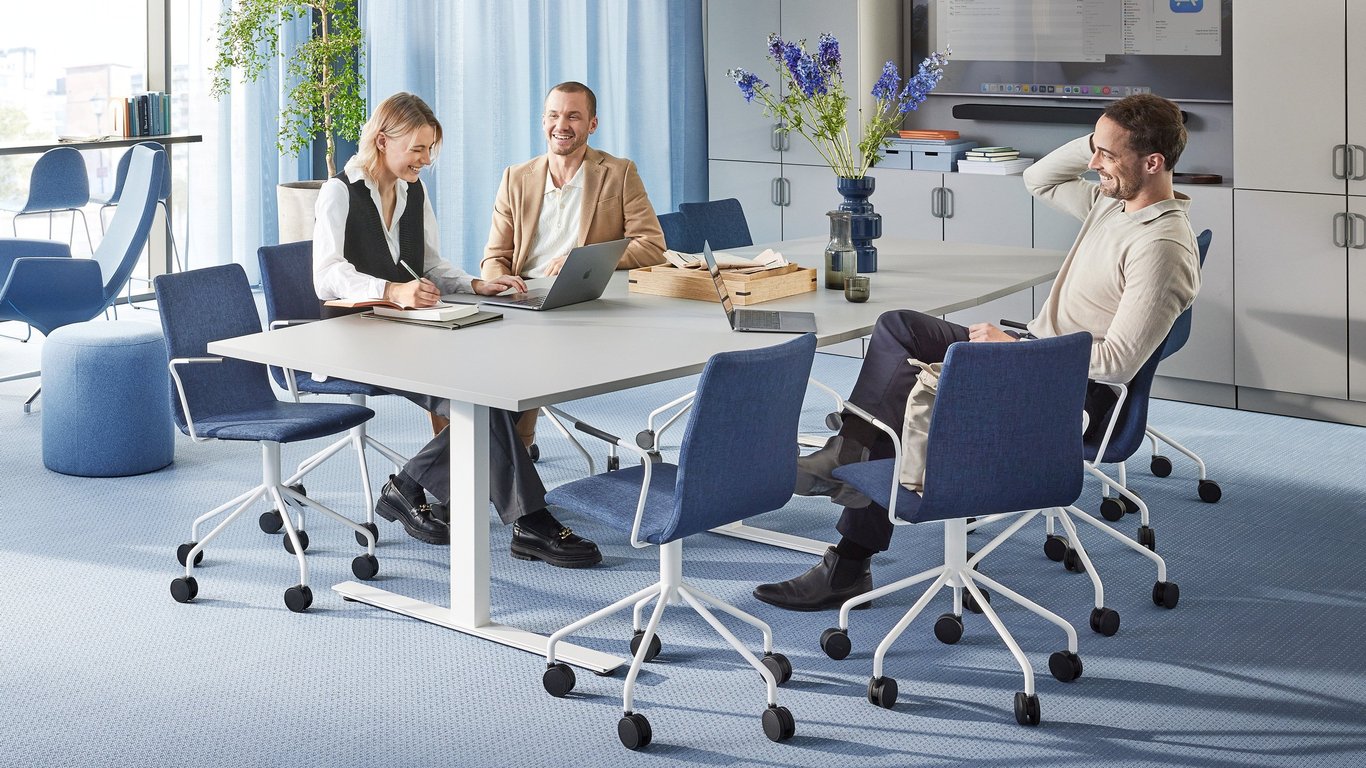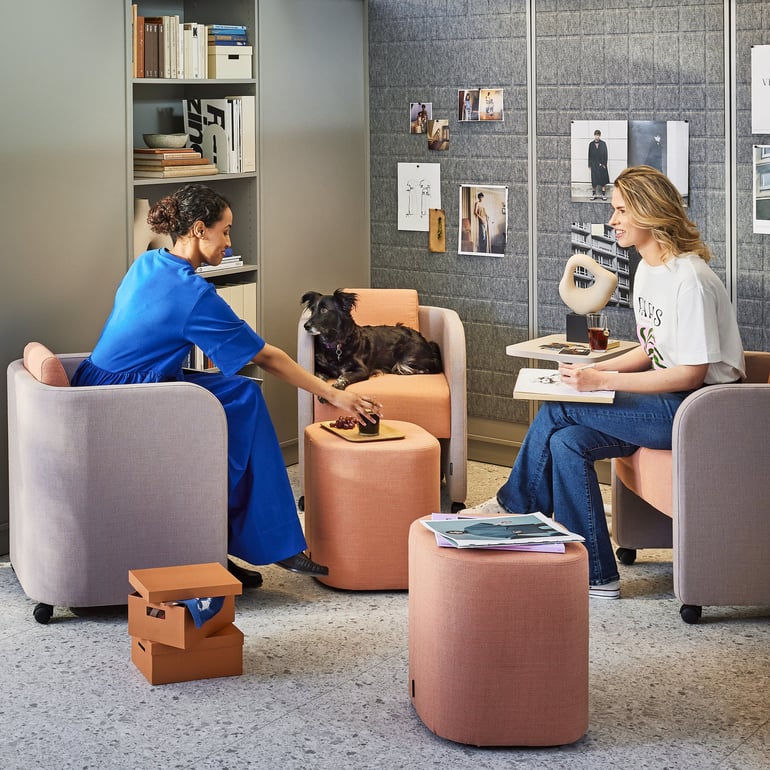- AJ Products UK
- Blog: Tips to Inspire Happiness at Work
- Improving the work environment
- Office vs. Home, Discover Where You're More Productive

Office vs. Home, Discover Where You're More Productive
A large study published in the journal Nature last year shows that remote work reduces our ability to innovate. The direct consequence of widespread remote work is that we may end up with workplaces and companies that stagnate. But at the same time, many appreciate being able to do their job from their own home.
So what is the solution - Should companies focus on enticing employees back to the office with perks like a designated 'mood manager,' stocked fridges, and engaging activities? Or should we embrace the hybrid model, offering flexibility where employees switch between working from home and in-office days to combine the best of both worlds?
- If you know exactly what you need to do, you can work from home and have short online meetings in between. Home is suitable for tasks that require focused work without distractions. But if you encounter problems or need to come up with different solutions to complex issues, it's better to come into the office and meet colleagues in person.
Meetings that spark creativity
When we don't go to work, we miss out on what is called the "third place" in sociology - a place where people gather outside of the home (the first place) and the workplace (the second place), explains Leif Denti.
- Although it may be easier to work undisturbed at home, there is a downside. In your home, you miss out on those spontaneous and informal conversations with colleagues that can happen around the coffee machine or in the cafeteria. These settings offer time to ask those "stupid questions" that you might not raise in a formal meeting. When we only meet digitally on Teams or Zoom, these interactions can easily disappear.
These types of meetings are important, both for creativity and for enjoying your job, he notes.
- You can try to create a 'virtual coffee room', but it requires a little extra effort from everyone. From what I can see, it's not very common to do so. Most people seem to feel that they would rather spend that time on their tasks.
How does a video call compare to meeting in person?
- There is a big difference. The further away from a real meeting we get, the less 'rich' the communication becomes. In digital meetings, it's difficult to pick up body language and subtle signals, like if someone agrees or is bored. It also becomes tricky with turn-taking: people become more withdrawn and ask fewer questions. This affects the conversation negatively.
When only one person can speak at a time, the "bandwidth of the conversation" is also limited, as Leif Denti puts it:
- After a digital meeting, we often just shut down, unlike in the office where we might grab a coffee afterwards and continue discussing. It's in these moments, far from the formal meeting, that many important thoughts and ideas can come up - things that may not have been mentioned or ideas someone wasn't brave enough to share during the actual meeting.
Another challenge of remote work that is often highlighted is that it becomes difficult to build a strong company culture and sense of community.
- It is harder to build strong relationships with colleagues if you don't meet regularly. Sure, you can build relationships online, but it's often easier and more effective face to face. Junior employees often prefer to be in the office more than senior counterparts, perhaps because they seek valuable knowledge from more experienced colleagues.
50-50 provides the best balance
While there's no set formula for how - and where - companies and employees should best structure their work, studies show positive effects of working from home up to 2.5 days a week. It gives us more control over our lives and helps with the balance between work and leisure: No more commuting means you can use that time to take care of things at home or simplifying the task of picking up and dropping off children easier.
- If you work from home more than that, the disadvantages can start to outweigh the benefits: it becomes harder to keep track of what's happening at work and what's important at that moment. If you lose that feeling, work can feel less rewarding over time, and you can feel isolated.
As Leif Denti sees it, the current working life is characterised by a search for the best working methods.
- Change and innovation are timeless subjects. But they are also difficult questions. Eventually, we will find the solution. I'm not worried about that.
How do you think that solution could look?
- In five to ten years, we will discover various models better suited to different types of companies. For example, remote work might prove more effective for employees at a software company compared to those at a service-based business. But above all, we will understand more about how remote work affects productivity and ourselves. And once we know that, it will be easier to come up with a plan.
